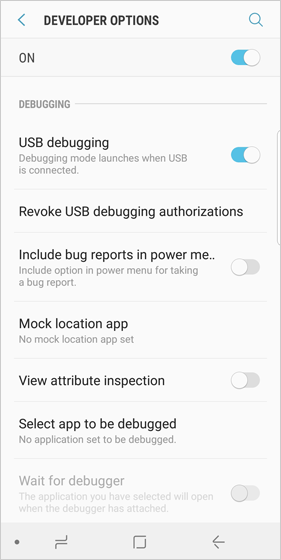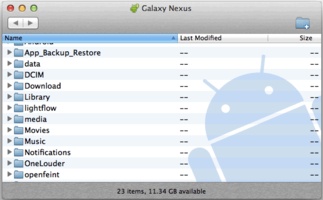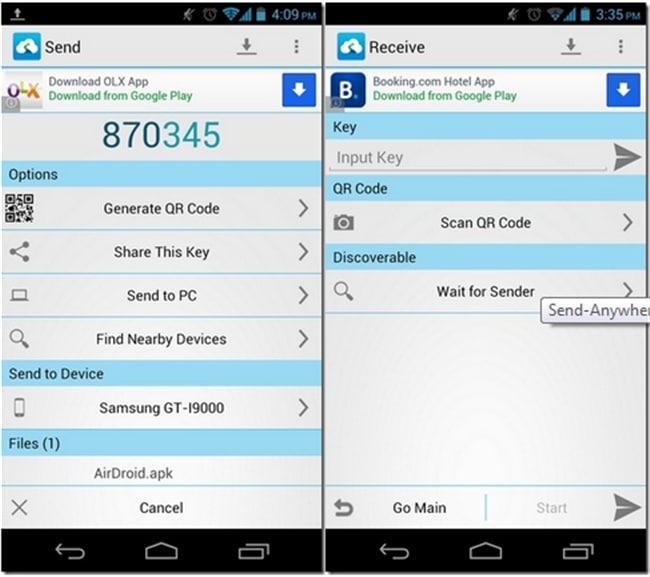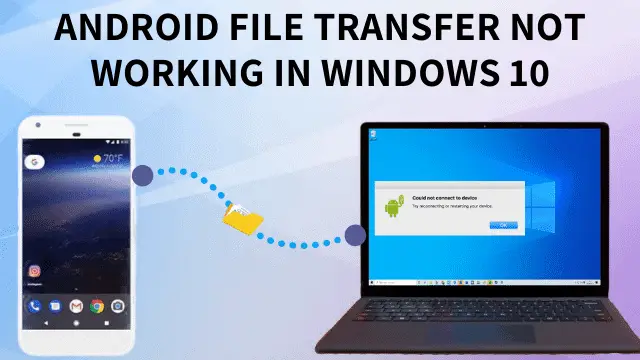'Trying to transfer files from my Samsung S8 to my Mac Pro running High Sierra 10.13.4. The Android transfer app will not connect to my phone, and I've tried installing the Smart Switch app, but with no luck. I also updated my system on the phone, still no luck. I'm thinking about calling Verizon to exchange the phone for something that works. How do I transfer files to my Mac from my Samsung phone?'
An excellent file explorer for all mobile phones to browse phone files, and transfer all files or folders between mobile phone and computer. Directly drag & drop wanted music, videos, documents, ebooks and other files into a phone folder. Mange or export the files or folders from Android/iOS devices. Transfer data between computer and mobile SD. Download AirDrop & File Transfer PC for free at BrowserCam. Super Coder published AirDrop & File Transfer for Android operating system mobile devices, but it is possible to download and install AirDrop & File Transfer for PC or Computer with operating systems such as Windows 7, 8, 8.1, 10 and Mac. The program Android File Transfer is such a program for you. For its easier alternative, you can always choose Dr.Fone - Phone Manager (Android) for Android transfer for Mac. Connect your Android to Mac with the USB cable. Get Android File Transfer downloaded on your Mac, install and open it (this may take a while). Feb 26, 2019 To transfer pictures from Android to Mac, you have at least 5 options - transfer via Android File Transfer, MobiKin Assistant for Android, Image Capture, AirDroid and Preview. You can choose the way you like to sync photos from Android to Mac without hassles.
If you are looking for an effective way to do the transfer, you can learn the top 8 Android file transfer app for Mac to get a full understanding of their features, advantages, disadvantages, pros, cons, compatibility, and even the steps to transfer files between Android and Mac, and find the best one for your devices.
Part 1. Android File Transfer App for Mac
Part 2. The Best Android File Transfer for Mac
Part 3. Android Transfer Tool - AirDroid
Part 4. Android Transfer for Mac - Smart Switch
Part 5. Android Manager for Mac - HandShaker
Part 6. Android File Transfer for macOS - Command One
Part 7. Android File Transfer to Mac - SyncMate
Part 8. Android File Transfer to Mac - MacDroid
Part 1. Android File Transfer App for Mac
When it comes to Android to Mac file transfer, Android File Transfer may occur to you. This Google-created app allows you to transfer videos, music, photos, contacts, apps, etc., between Android and Mac up to 4GB, and supports macOS X 10.7 and later versions and Android 3.0 and up.
Pros:

* Transfer many files between Android and Mac directly.
Cons:
* Numerous errors keep popping up during connection or transfer.
* It may get timeout near the completeness when you transfer large files.
* You cannot manage Android apps on this software.
* Not intuitive interface for novices.
How to use Android File Transfer for macOS X?
1. Download this app from the website, double-click the .dmg file, and drag it into the Applications app from the pop-up window to install it.
2. Connect your Android device to your Mac using a USB cable and double-click the Android File Transfer icon to open it.
3. Browse the files on this app and copy them from or to your Mac.
Download it from here.
You may like:How to Fix Android File Transfer Not Working on Mac (Proven Tips)
Part 2. The Best Android File Transfer for Mac - Coolmuster Android Assistant for Mac
Coolmuster Android Assistant for Mac is known as the best Android File Transfer alternative. With it, you can transfer files from Android to a Mac and restore backups from the Mac to an Android device in one click. It supports various file types, like contacts, SMS, call logs, videos, photos, music, apps, books, etc. More than that, it also lets you manage your Android files on your Mac: Add, delete, edit contacts, install, uninstall apps, etc.
The main characteristics of Coolmuster Android Assistant for Mac:
* Transfer contacts, call logs, music, photos, SMS, books, videos, apps, etc., between an Android device and a Mac computer.
* One-click to back up Android to Mac and restore backups from Mac to Android.
* Android manager for Mac: Add, delete, and edit contacts, send, reply, and delete text messages, install & uninstall apps, delete call logs, capture the Android screen, etc.
* Intuitive interface, highly secure, one-click operation, and selective.
* Widely compatible with macOS X10.9 and later, and Android 4.0 and up (Android 11 included), such as Samsung S20/S20+/S20 Ultra/S10/S10+/S9/S8, Google Pixel 5/4/4XL, LG W31+/Wing 5G/G8/G7/G6, Sony Xperia 5/5 Plus/4, Huawei Nova 8/7/P40/P40 Pro/Mate40, etc.
One-click to transfer files from Android to Mac:
1. Install Coolmuster Android Assistant for Mac on your Mac.
Run the best Android File Transfer for Mac after installing it on your Mac and enter the Android Assistant module from the toolbox.
2. Connect your Android device to the Mac.
Use a working USB cable to connect the two devices, and the program will start to detect your Android. Then, enable the USB debugging on your Android device by tapping the Allow or OK button. Once connected, you will see a similar interface below.
3. Start the Android to Mac file transfer.
Choose a data type you want from the left panel, for example, Photos. Preview and check the photos you wish to transfer and hit the Export button on the top menu.
One-click to transfer files from Mac to Android:
1. Download this app and connect your Android to the Mac.
2. Start the Mac to Android file transfer.
After a full connection, click the Photos option from the left window > hit the Add button on the top menu > choose the wanted photos from the pop-up window > click the Open button to import the photo backup from the Mac to an Android device.
Further reading: How to Back Up Android Contacts to Mac Easily? (Proven Tips)
Part 3. Android Transfer Tool - AirDroid
AirDroid makes it possible for you to download files, receive notifications, send text messages directly from your Mac, copy any Android files to a Mac, or vice versa. It connects your Mac and Android via Wi-Fi and gets the job done quickly.
The key features of AirDroid:
* Migrate photos, music, documents, or APKs between your Android and Mac.
* Remote control your Android device with Mac's keyboard anytime.
* Mirror your Android's SMS, emails, and app notifications to your Mac and reply on your Mac directly.
Supported devices: Serial para paragon ntfs for mac 15.
* Android 2.1 or later versions (Android 11 supported).
* At least Chrome 12, Firefox 3.6, and Safari 5.0.
Pros:
* Wide compatibility.
* Fast and reliable app.
* Support almost all data types.
Cons:
* Only the premium version supports to transfer folders.
* Sending text messages from a computer will delay somehow.
* Not support MMS.
Download it from here.
Part 4. Android Transfer for Mac - Smart Switch
Samsung's Smart Switch is another Android transfer for Mac to easily back up and restore photos, videos, contacts, music, messages, and other files on your old phone to your Mac. Apart from that, it also lets you seamlessly sync files from an Android, iOS, Windows Phone, or BlackBerry phone to a Samsung Galaxy.
The key features of Smart Switch for Mac:
* Transfer contacts, messages, music, and more from an Android, iOS, BlackBerry, or Windows phone to a Samsung Galaxy in one click.
* Easily back up and restore phone files on a Mac.
* Update the device software with this app.
Supported devices:
* a Samsung device with Android 4.3 or later versions.
* The old device must be a Samsung running at least Android 4.3 or an iPhone running at least iOS 4.2.1.
* macOS X10.9 or later.
Pros:
* Support various file types, including call history, audios, messages, contacts, photos, documents, videos, etc.
* Best to use for Samsung Galaxy series.
* A reliable app from Samsung company.
* Widely compatible with various phones and computers.
Cons:
* Slow and not too many functions in Mac version.
* Use an old protocol.
* Sometimes, it will interrupt during transfer.
Download it from here.
Read more: Samsung File Transfer for Mac: Top 5 Ways of Samsung to Mac Transfer
Part 5. Android Manager for Mac - HandShaker
To find an easy Android file transfer for macOS X, you can also take a look at HandShaker. It sends and manages files from one device to another at ease and works well with many Android devices and Macs. Using it, you will swiftly transfer files between devices without any difficulty.
The key features of HandShaker:
* Drag and drop media files and other data from device to device.
* Breezily manage your Android internal and external SD card files.
Supported devices:
* Android 5 and up.
* macOS X10.10/10.11/10.12/10.13/10.14/10.15/11.
Pros:
* High-speed transfer.
Cons:
* Syncing files is prolonged.
* Ads pop up when transfer.
Download it from here.
Part 6. Android File Transfer for macOS - Command One
Command One is an Android manager for Mac that offers a dual-panel mode and integrates with the cloud storage services. It automatically scans the iOS files and even supports the archives and hidden system files. By connecting your Android device to a Mac via a USB cable, you will freely manage and transfer almost everything between an Android smartphone/tablet and a Mac computer.
The key features of Command One:
* Transfer user files, hidden system data, and archives between an Android and Mac under a secure transfer protocol, like SFTP, FTP, FTPS, etc.
* Manage system processes using the Terminal Emulator.
Supported devices:
* macOS X 10.12 or later.

Pros:
* Work like a Finder.
* Classic solutions.
Cons:
* A bit messy.
* The FTP protocol does not work on some devices.
* Difficult to use.
* Incompatible with some devices.
Download it from here.
Part 7. Android File Transfer to Mac - SyncMate
This Android file transfer alternative keeps your Android and Mac up-to-date by automatically syncing and updating files automatically once you have SyncMate apps on both Android and Mac. Specifically, it mounts your Android device as an external disk and supports the syncing of calendars, contacts, playlists, music, folders, and photos.
The key features of SyncMate:
* Auto-syncing: Once the app is installed on both devices, it will automatically sync music, playlists, calendars, contacts, photos, and folders between your Android and Mac.
* Manual-syncing: You can also manually transfer wanted files between two devices.
* Mount an Android as an external disk on Mac.
Supported devices:
* Android 5 and above.
* macOS X 10.10 and later.
Pros:
* Works with a wide range of devices and files.
Cons:
* It takes hours to transfer large files.
* Connection gets lost all the time, whatever by Wi-Fi or cable.
* Not recognize some Android device types, for example, Xiaomi MI9.
Download it from here.
Part 8. Android File Transfer to Mac - MacDroid
The last Android file transfer app for Mac is MacDroid. Do you know what does its name come from? I guess you already know the answer. As its name implies, MacDroid is an effective Android transfer tool between an Android and Mac. What's more, it transfers any files quickly and supports internal and external Android storage.
The key features of MacDroid:
* Mount an Android internal and external storage.
* Transfer music, photos, folders, and videos between a Mac and Android device under a USB connection.
* Support all Android and MTP devices.
* Access Android files in Finder on Mac.
* Edit Android files directly.
Supported devices:
* macOS 10.10 or higher.
* Android and MTP devices.
Pros:
* Offer free and Pro versions.
* User-friendly.
* No additional extensions or plugins.
Cons:
* Limited features in the Free version.
* Very expensive.
Download it from here.
Final Words
Now you may have a clear understanding of the top 8 Android file transfer apps for Mac and are considering which one is the best. I reckon Coolmuster Android Assistant for Mac is the best-recommended app to transfer files between Android and Mac. It is highly secure to use and allows you to transfer files between your Android and Mac without extra steps. Also, it is swift, widely compatible, and multi-functional. If you choose this, you will find it worthwhile.
If you have any queries when using, please leave a comment below.
Related Articles:
The Media Transfer Protocol (MTP) can be used to transfer media files to and from many mobile phones (all Windows Phone 7/8/10 devices, most newer Android devices) and media players (e.g. Creative Zen).
Android File Transfer Mohave Download
Connecting
To connect your computer to a device via MTP:
- the device needs to be connected to your computer via USB
- MTP needs to be enabled on the device
- the device's screen needs to be unlocked (for security reasons)
FUSE filesystems
The following programs let you access MTP devices via a FUSE filesystem.
For the FUSE-based file systems, you might need to create the mount-point directory first. The directory ~/mnt is used in the examples below.
FUSE mounts can generally be unmounted using fusermount -u mountpoint.
Android File Transfer
Android File Transfer — MTP client with CLI, Qt UI, and FUSE wrapper which uses a custom MTP implementation
- https://whoozle.github.io/android-file-transfer-linux/ || android-file-transfer
Mount your device on ~/mnt:
If you want album art to be displayed, it must be named albumart.xxx and placed first in the destination folder. Then copy other files. Also, note that fuse could be 7-8 times slower than ui/cli file transfer.
If you want to interact with it via the command line interface, run the command:
Type help in order to list all the commands available, exit to quit.
If you want to interact with it via the graphical user interface, start the android-file-transfer application, choose a destination folder and click any button on the toolbar. Available options are: Upload Album, Upload Directory and Upload Files. The latter two are self-explanatory. Upload album searches the source directory for album covers, and sets the best available cover.
MTPfs
MTPfs — based on libmtp, it is a FUSE filesystem that supports reading and writing from any MTP device
- https://www.adebenham.com/mtpfs/ || mtpfs
First edit your /etc/fuse.conf and uncomment the following line: Microsoft visio full version free download.
Mount your device on ~/mnt:
jmtpfs
jmtpfs — based on libmtp for accessing MTP (Media Transfer Protocol) devices
- https://github.com/JasonFerrara/jmtpfs || jmtpfsAUR
Mount device on ~/mnt:
Make this cohere to the rest of Linux (use regular mount/umount commands) by doing two steps
add this line to /etc/fstab;
Now mount the device and see if the options 'took'
SIMPLE-MTPFS
SIMPLE-MTPFS — based on libmtp Simple Media Transfer Protocol FileSystem is a file system capable of operating on files on MTP devices attached via USB to local machine
- https://github.com/phatina/simple-mtpfs/ || simple-mtpfsAUR
Run simple-mtpfs -l to list detected devices.
To mount the first device in the list to ~/mnt, run simple-mtpfs --device 1 ~/mnt.
go-mtpfs
go-mtpfs — FUSE filesystem with custom MTP implementation, written in Go
- https://github.com/hanwen/go-mtpfs || go-mtpfs-gitAUR
Install android-udev, which will allow you to edit /etc/udev/rules.d/51-android.rules and apply to your idVendor and idProduct, which you can see after running mtp-detect. To the end of the line, add your user OWNER='<user>'.
Mount device on ~/mnt:
- When using multiple devices you may want to use the
-dflag to specify a device (id can be found by runningmtp-detect - Mounting with
go-mtpfsmight fail if an external SD Card is present. If you try to access your device while having an SD card and go-mtpfs complains, try removing the SD card and mounting again.)
libmtp
libmtp is a library MTP implementation, which also comes with some example command-line tools (which you can list using pacman -Ql libmtp).
Install the libmtp package.
Run mtp-detect to detect your device.
If an error is returned, make sure your user is in the uucpuser group.
You can transfer files using the mtp-connect command.
Media players
You can also use your MTP device in music players such as Amarok. To achieve this, you might have to edit /etc/udev/rules.d/51-android.rules (the MTP device used in the following example is a Galaxy Nexus). Run:
Search for your device. It should be something like that:
And entry to /etc/udev/rules.d/51-android.rules will be this:
Also reload udev rules:
File manager integration
To view the contents of your Android device's storage via MTP in your file manager, install the corresponding plugin:
- For file managers that use GVFS (GNOME Files), install gvfs-mtp for MTP or gvfs-gphoto2 for PTP support.
- For file managers that use KIO (KDE's Dolphin), MTP support is included in kio-extras (dependency of dolphin).
After installing the required package, the device should show up in the file manager automatically and be accessible via an URL, for example mtp://[usb:002,013]/.
gvfs-mtp
This article or section is a candidate for merging with udev.
The gvfs-mtp is available in the official repositories.
With lsusb you can get information about your device where Bus and Device numbers can be used with gvfs-mtp and device ID for creating of an udev rule.
To see detected device with enabled MTP
Use gio mount:
Use lsusb:
To mount all available connected MTP devices use inline script
To mount or dismount from a command with gvfs-mtp use Bus and Device numbers, e.g. to mount gio mount mtp://[usb:001,007]/ and to unmount gio mount -u mtp://[usb:001,007]/. The mounted device will be available in a directory that begins with mtp:host= and is located under /run/user/$UID/gvfs/.
Disable automount of MTP devices with gvfs you will need to change value true to false for variable AutoMount that is located in /usr/share/gvfs/mounts/mtp.mount.
If your device is not showing up in the file manager then #libmtp is missing a native support and is not currently available in the list of the supported devices. If you will try to mount by using command line you may also get an error
The workaround to make it shown in the file manager is to write an udev rule for the device but it is no guaranty that you will be able to mount it with by using MTP connection.
Use ID number that represents by pattern vendorId:productID,e.g. 04b7:88a9, and make an udev rule by creating a configuration file
Reload the udev rules.
The file managers with support for gvfs will be able to show MTP devices and mount them if supported by #libmtp but if has no support and cannot be opened then change settings in the phone to PTP and install gvfs-gphoto2 for having access at least to the photos, command line mounting of PTP is a little similar to mounting of the MTP devices: gio mount gphoto2://[usb:002,019]/.
cp,ls then look for gvfs own alternatives, ls -1 /usr/bin/gvfs-*.Troubleshooting
libmtp (gvfs-mtp): filemanager (nautilus, pcmanfm, vifm and etc) hangs on accessing DCIM/Camera of Android device

Symptoms: everything works fine till moment of entering DCIM/Camera directory. In this case filemanager freezes and even in command line you cannot run even ls on that directory.
Possible and very probable reason is the bug of libmtp.
It seems that it is caused by file with name like 20180915_180351(0).jpg. Samsung phones for example like to create files with such names.
There are several tickets (one, two and etc) and questions (one, two) about it.
So possible workaround is to use different mtp option from #FUSE filesystems like go-mtpfs for such directories or somehow change file naming policy of your phone camera (or switch to another camera app like Open Camera for example).
jmtpfs: Input/output error upon first access
Symptoms: jmtpfs successfully mounts, but as soon as one attempts to access files on the device (e.g. via ls), an error is reported:
This appears to be a security feature: MTP does not work when the phone is locked by the lockscreen. Unlock the phone and it should work again as long as the cord remains connected.

kio-mtp: cannot use 'Open with File Manager' action
If you are not able to use the action 'Open with File Manager', you may work around this problem by editing the file /usr/share/solid/actions/solid_mtp.desktop.
Change the line Exec=kioclient exec mtp:udi=%i/ to Exec=dolphin 'mtp:/'.
kio-mtp being called simultaneously by different services
Parallel usage of mtpfs and kio-mtp, as well as conflicting services using kio-mtp -music players included- should be avoided, as mentioned in this forum.
Android File Transfer Mohave County
Amarok's plugin for MTP services, for example, might be preventing Dolphin (plasma) to access different phone model's files. Switching it off was a solution for at least one user.
Android File Transfer: connect failed: no MTP device found
After installing android-file-transfer, while trying to mount any MTP device if you get the following error:
then install the package: android-udev. This package contains per manufacturer/device udev rules for MTP devices, making it easier to use ADB or MTP.